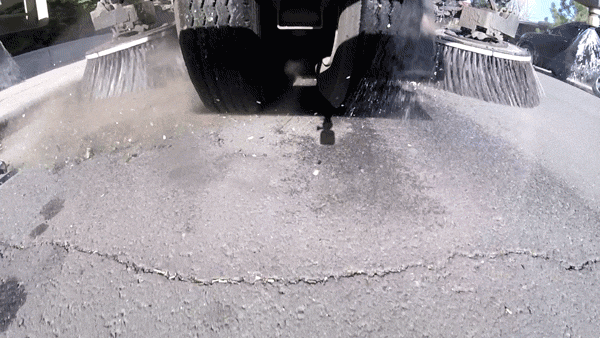
Denver, it's street sweeping season once again and we want to remind you to move your car. But while you're probably used to hearing about getting a ticket, it's time you learn the truth: there's a ton of pollution on Denver's roads, and those bristled behemoths are the only thing stopping that crud from floating into your airways and flowing into the city's creeks and rivers.
How much you ask? Something to the tune of Coors Field stacked 9 feet high with solid waste gets collected by Denver Public Works each year. Yeah.
This is especially important because that landscape of dirt is full of unpleasant stuff like lead, chloride, zinc, copper, phosphorus and even a dash of mercury. Think of a time before street sweeping became a thing and all that stuff just clouded the sky.

We went down to Denver's Gotham-esque Public Works headquarters to talk shop with the city's grime-time experts.
Senior Engineer Darren Mollendor is the man with all the numbers. Using a national model, he's estimated that 12,000 pounds of lead was removed from the streets last year alone.
"Unabated," he said, "that would have made it to the South Platte River."

The well-being of every critter and plant that depends on a riparian area nearby also depends on street sweeping to keep harmful compounds out of their ecosystem. The same goes for every animal and human downstream, too.
Each year the "total pollutants of concern" that Public Works removes from roadways increases. Mollendor's numbers show that gunk nearly doubled between 2012 and 2016.
It turns out that explosion of new construction, people and cars we've seen in recent years has had some side effects, and you can see it in a pile of dirt collected by Denver's humble street sweepers.
"What I'd love to see," Mollendor said, "is that everybody understands that what hits the roadway really is a pollutant."
This means that those bothersome tickets and parking schedules mean far more than a simple inconvenience.

"If it does come down to Denver assessing tickets to make people to move cars to make the street sweepers more efficient," he said, it's about environmental impact, not revenue.
So here's your friendly reminder to glance at those signs and move those cars. There's more than pocket change riding on it.












